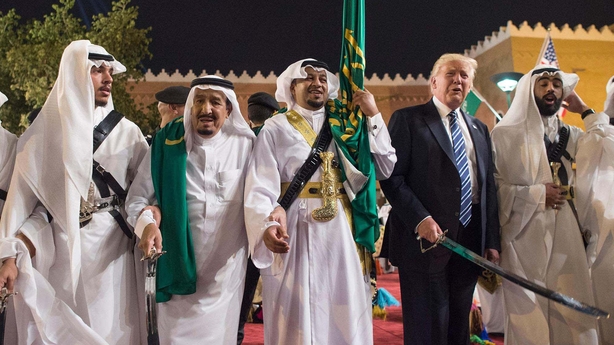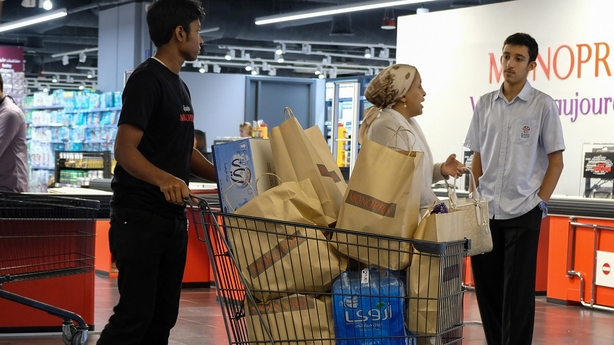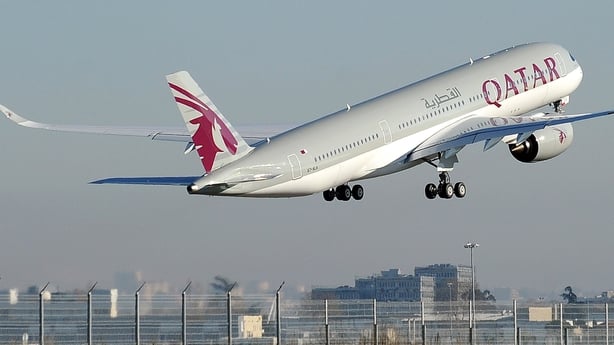By Adrian Lydon in Abu Dhabi
It was 16 December 2015, and a group of Qataris, including members of the royal family, were on a hunting trip in Iraq when they were taken hostage. Sixteen months later, on 21 April 2017, they were released.
On Monday of this week, the Financial Times reported that the Qatari government had paid $1 billion to two blacklisted groups, an al-Qaeda affiliate in Syria and Iranian security officials, to secure the group’s release.
News of the payment enraged the Saudis and set off the unprecedented action by the Arab states that has left the oil-and-gas-rich tiny state of Qatar under siege.
Saudi Arabia, Egypt, the United Arab Emirates and Bahrain cut off diplomatic ties and transport links to Qatar, alleging the country fuels extremism and terrorism.
Qatar strongly denies the allegations.
Qatar’s position has not been helped by recent comments allegedly from the Emir of Qatar, Sheikh Tamim bin Hamad Al Thani, which appeared on the Qatari news agency website describing Iran as a "major force to ensure stability in the region" and defending Hamas and Hezbollah.
The Qataris later denied these remarks, stating their website had been hacked.
But the extraordinary steps of the last few days also occurred because of another major factor - US President Donald Trump.
So good to see the Saudi Arabia visit with the King and 50 countries already paying off. They said they would take a hard line on funding...
— Donald J. Trump (@realDonaldTrump) June 6, 2017
...extremism, and all reference was pointing to Qatar. Perhaps this will be the beginning of the end to the horror of terrorism!
— Donald J. Trump (@realDonaldTrump) June 6, 2017
Two weeks ago, on his visit to Saudi Arabia, in a speech in Riyadh, Mr Trump blamed Iran for instability in the Middle East and urged Muslim countries to take the lead in combating radicalisation.
Mr Trump's words emboldened the Arab states into action and yesterday, through Twitter, the US president waded into the Gulf stand-off.

Mr Trump tweeted: "So good to see the Saudi Arabia visit … already paying off. They said they would take a hard line on funding extremism, and all references was pointing to Qatar. Perhaps this will be the end of the horror of terrorism!"
Within days of Mr Trump’s visit to the region, living here in the United Arab Emirates, we noticed that something was up.
The UAE blocked Qatari news sites, including Al Jazeera, and they have remained blocked across the region since.
And on Monday, it escalated into a major regional crisis.
An immediate impact - food, flights and football
The immediate result of this drastic action was felt on the shelves of shops across Qatar as residents scrambled to stock up on food.
It is believed that 40% of Qatar's food is imported via its only land border with Saudi Arabia.
There are fears that bringing food via sea ports and by air will lead to rocketing prices at the tills.

Aviation links have been thrown into chaos.
Qatar Airways has suspended flights to Saudi Arabia, the UAE, Egypt and Bahrain.
The impact is staggering - Qatar Airways flew 25 flights a day to the UAE and 20 to Saudi Arabia.
It has also been banned from using Saudi and Bahrain airspace, shifting its routes to use Iranian airspace instead.
Dubai's Emirates airline and Abu Dhabi's Etihad have cancelled flights to Qatar.
It has left thousands of Irish living in Qatar very worried about access into and out of the country as many have been using connections via Dubai and Abu Dhabi to get home.

However, Qatar Airways will begin a daily flight to Dublin from next Monday 12 June.
And the diplomatic crisis is the latest complication as Qatar prepares for the World Cup in 2022.
Eight stadiums are currently under construction and some commentators believe that this crisis could affect supplies of materials, thereby delaying the projects.
It could also renew calls for the World Cup to be taken away from Qatar.
Where to next?
Well, we have kind of been here before.
In 2014, Saudi Arabia, the United Arab Emirates and Bahrain recalled their ambassadors from Qatar over its alleged support for the Muslim Brotherhood.
That spat ended after Qatar promised not to interfere in the internal affairs of its neighbours.
Kuwait brokered the deal at the time and will be a major player once again.
But this time things are different.
Qatar is being put on notice - in the strongest of terms - that all of its alleged conduct must finally stop. The Arab states' position is strong; Qatar’s weak.
Local media reports state that the Arab states are demanding the closure or reining in of Qatari-backed media outlets and the expulsion of political groups such as the Muslim Brotherhood and Hamas.
The ultimate aim is to rein in Qatar for once and for all.

